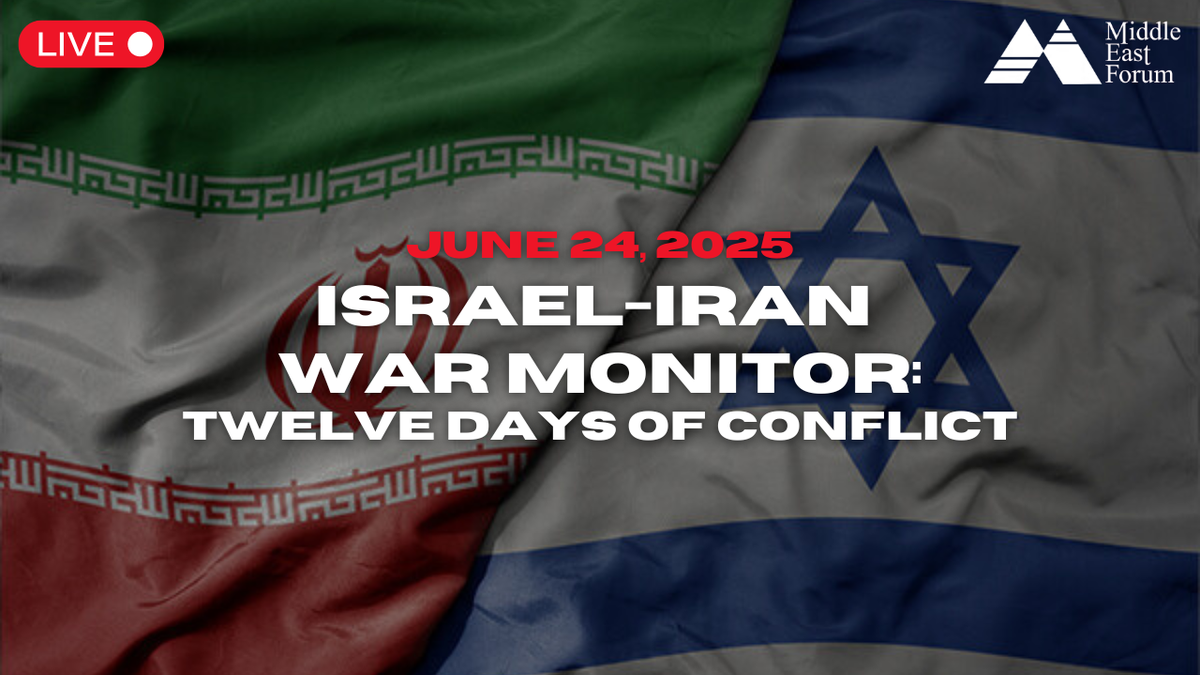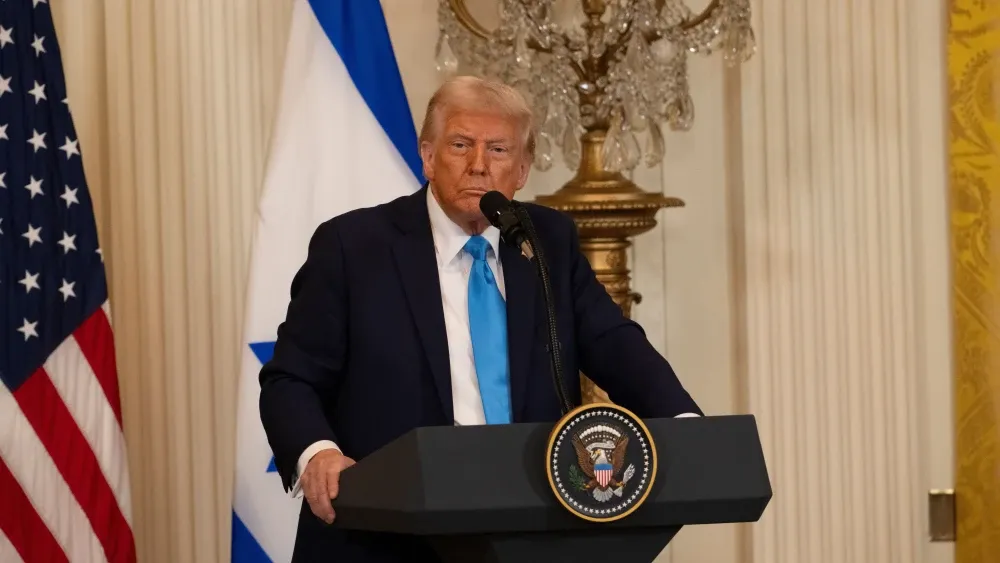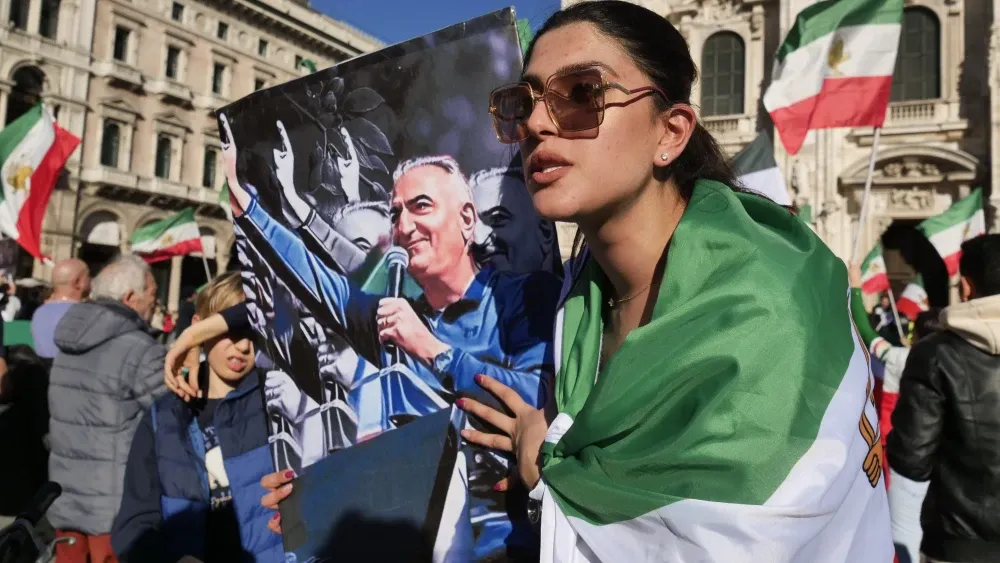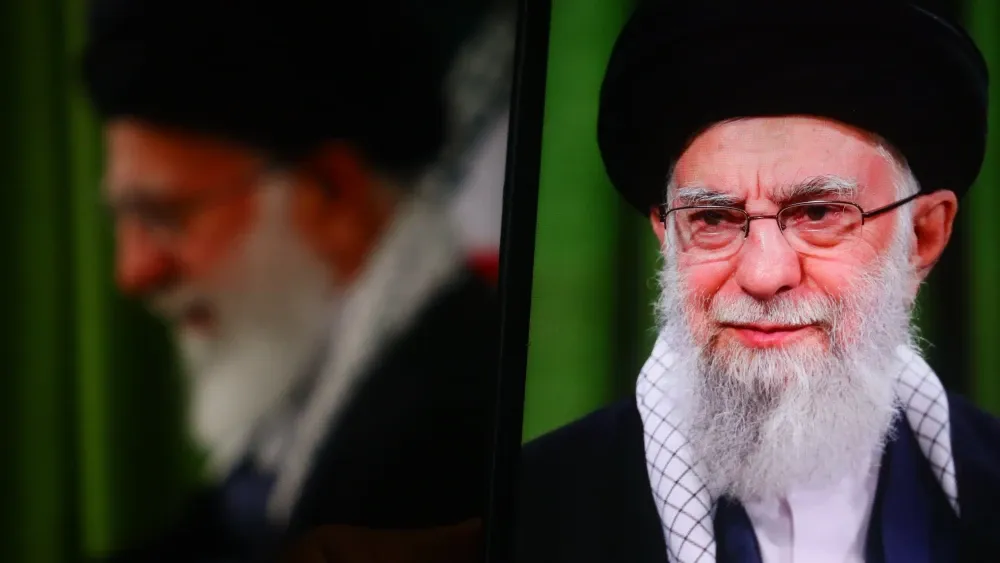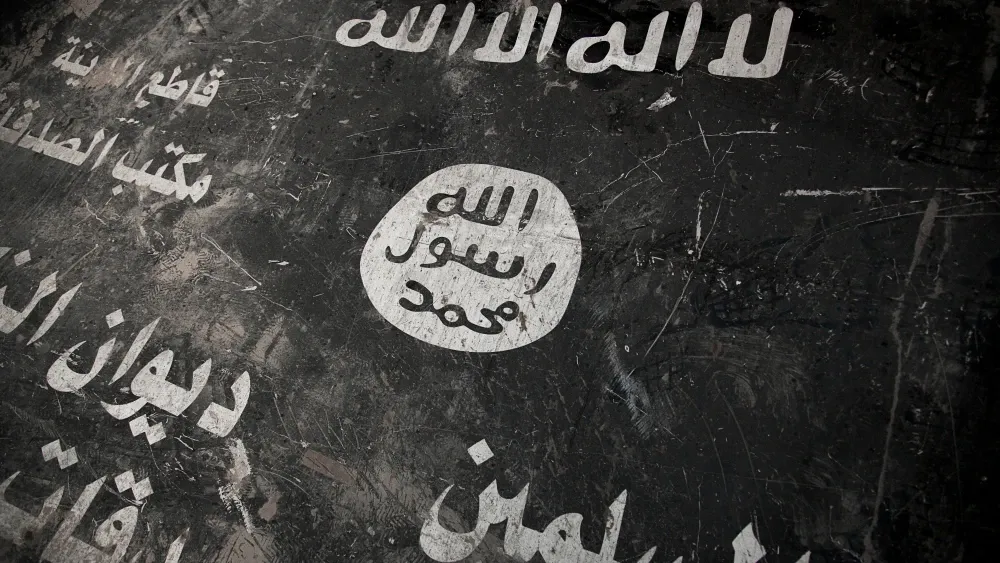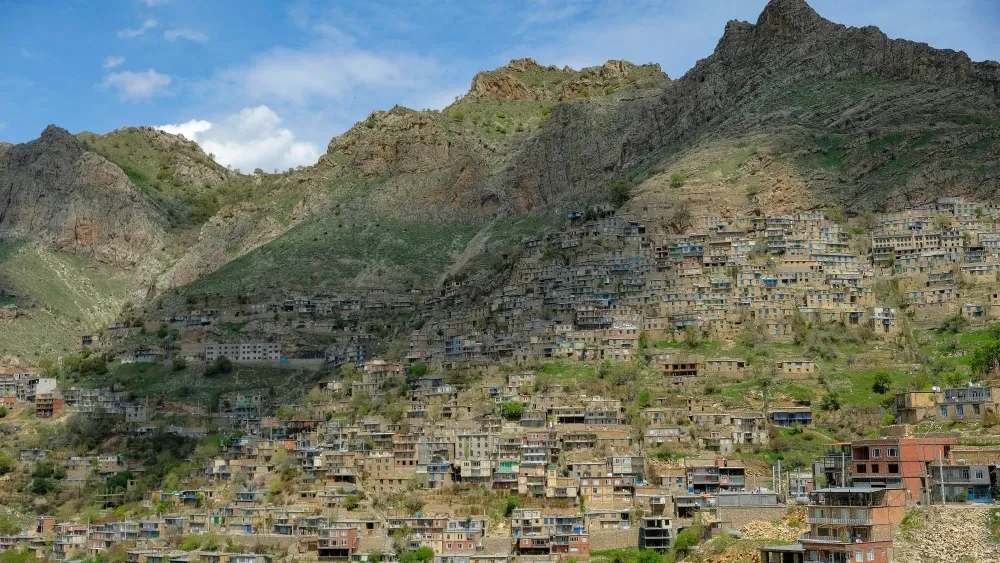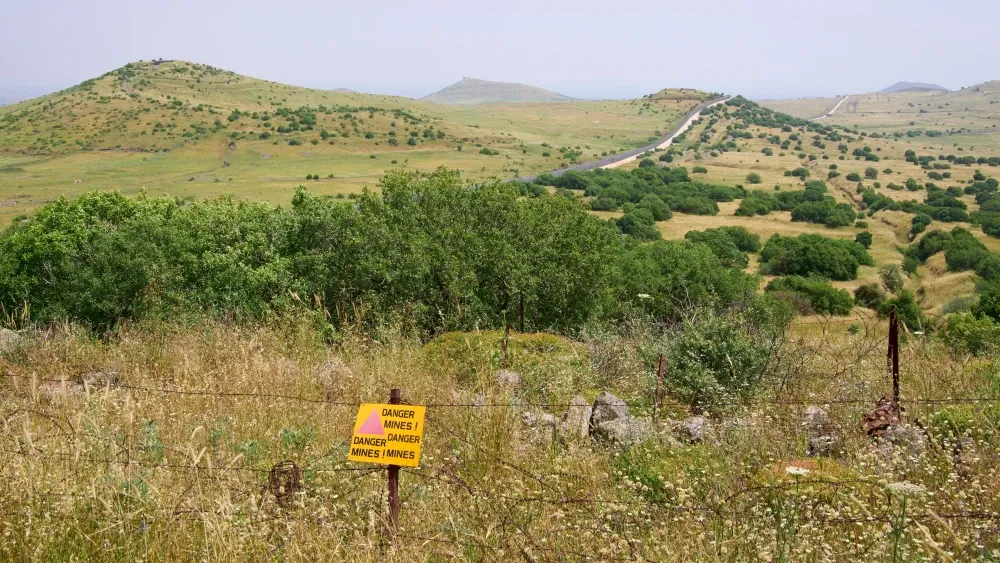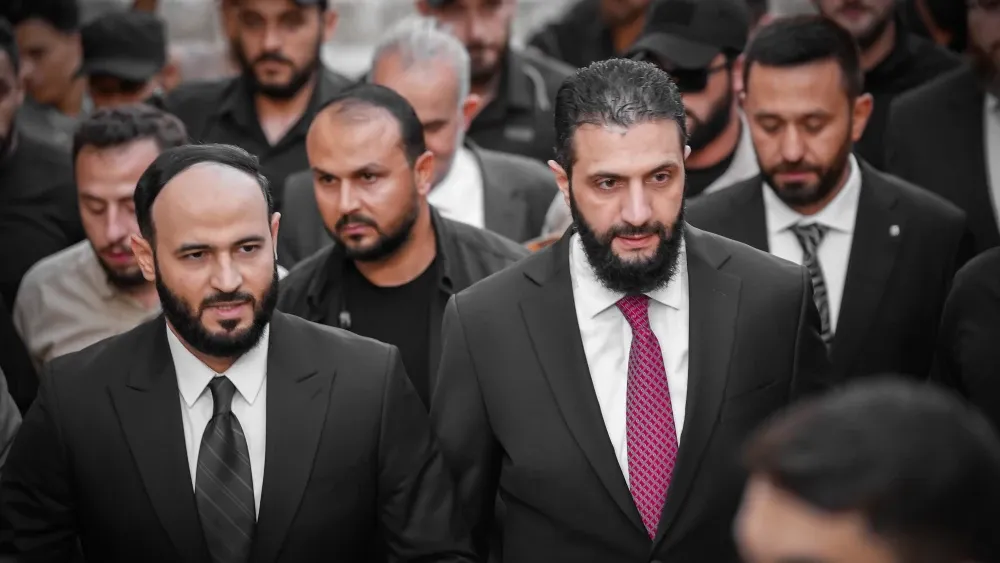| ||
 | ||
| Ceasefire or Peace?; 'Make Iran Great Again'; Sunset for Khamenei? By Winfield Myers ● Jun 24, 2025 Smart Brevity® count: 7.5 mins...2020 words Shay Khatiri reminds President Trump that a ceasefire and peace are different. Trump, he argues, should not to let a ceasefire get in the way of peace, which requires political conditions in Iran to change. Mardo Soghom writes that Iranians have adopted the hashtag #MIGA—Make Iran Great Again—in their hopes of a populist uprising made possible by Israel’s strikes. Saeid Golkar reminds us that Supreme Leader Ali Khamenei’s legacy “is defined solely by a grip on power maintained through fear, at the cost of devastating several generations of Iranian lives.” “The window for change,” he adds, has “opened with Israel’s attack on Iran but won’t stay that way for long.” Additional authors featured in this issue include Jonathan Spyer, Aymenn Jawad Al-Tamimi, Loqman Radpey, and Sirwan Kajjo. | ||
Watch: Israel-Iran War Monitor – Twelve Days of ConflictOn today’s broadcast, MEF executive director Gregg Roman discusses the recent ceasefire between Israel and Iran, highlighting the military defeat of the Iranian regime and the subsequent opportunities for the Iranian people to push for change. The discussion emphasizes the importance of information warfare, economic pressure, and the role of the U.S. and Israel in supporting a free Iran. Panelists provide insights on the opposition's strategies, potential human rights violations, and the need for direct communication from U.S. leaders to empower the Iranian populace. The conversation concludes with considerations for regional dynamics and the importance of information operations in encouraging defections within the regime. Panelists delve into the current state of Iran following military actions that have significantly affected its nuclear program and military capabilities. Experts discuss the strategic actions the U.S. should take, the implications for Iran's proxy network, and the mood in Israel post-conflict. The dialogue also touches on the potential for regime change in Iran and the support for Crown Prince Reza Pahlavi among the Iranian populace. The discussion concludes with reflections on the future of Iran and the importance of navigating the complexities of regime change. Today’s panelists:
To watch the full broadcast, click here. | ||
Don’t Let Ceasefire Get in the Way of PeaceOn June 23, President Donald Trump declared a unilateral ceasefire between Israel and Iran, with Iran confirming and Israel considering its options. Ceasefires are strategic pauses, not peace, which emerges from political change.
Why it matters: A repeat of the 1991 mistake, where a premature U.S. ceasefire left Saddam Hussein in power, will lead to similar outcomes if the regime remains unchanged. Encouraging regime change without support risks increased repression in Iran.
The stakes: For genuine peace, Iranians require unwavering support and protection from external powers to safely push for change.
What’s next: Trump must demand Supreme Leader Ali Khamenei sign a war termination agreement. Israel's continued air dominance is crucial to support Iranian uprisings by dismantling the regime's control mechanisms.
To read the full article, click here. | ||
Trump’s ‘Make Iran Great Again’ Strikes a Chord with Iranians amid AirstrikesWhen Iran blocked internet access to cut off outside influence, the hashtag #MIGA — Make Iran Great Again — began trending on June 21, 2025, proposed by President Trump. Why it matters: Thousands of Iranians are using the hashtag on platforms like X and Instagram, indicating widespread support for change. The movement reflects a growing desire for political reform and challenges the current regime's authority.
Driving the news: Trump's statement on Truth Social questions the current regime’s ability to improve Iran, sparking debate over the potential for regime change. His comments have further inflamed the situation, aligning with voices calling for international intervention.
The stakes: The joint U.S.-Israeli strikes have weakened the regime, potentially empowering Iranians to seize the moment. This military pressure is seen as a critical turning point in the region, with significant implications for Iran's future.
What’s next: Reports that Israel is targeting centers of domestic repression—such as Basij bases and police facilities used for surveillance, arrests, and enforcement of hijab rules—have given opposition activists hope. If these tools of control are crippled, many believe, it soon could become easier for the population to rise up. To read the full article, click here. | ||
The Strongman’s Sunset? Khamenei’s Reign of FearIn the wake of Israeli attacks, Ayatollah Ali Khamenei, Iran’s supreme leader, has retreated to an underground bunker, a stark signal of his vulnerable grip on power. Why it matters: Khamenei's Islamist regime, characterized by fear and repression, leaves Iran deeply divided. His retreat is a glaring indication of weakened leadership.
Driving the news: Everybody is talking about Khamenei’s second son Mojtaba Khamenei. However, it is against Shi’a tradition to appoint the son immediately.
The stakes: Based on statistics of the Islamic Republic (from a report that was leaked, after which the government had to acknowledge), 72 percent of the Iranian public believe that church and state should be separate (and because that’s coming from the state, one must assume the real number is higher).
Khamenei’s legacy: As Khamenei nears the end of his rule, his legacy is defined solely by a grip on power maintained through fear, at the cost of devastating several generations of Iranian lives. To read the full article, click here. | ||
Islamic State Editorial on the Israel-Iran WarIn its latest editorial, the Islamic State frames the Israel-Iran conflict as a battle between disbelievers—the “Rafidites” (Shi‘a, considered apostates) and the Jews, both seen as enemies of Islam. Why it matters: The Islamic State's narrative reinforces its call for Muslims worldwide to target Jews, viewing the conflict as an opportunity for jihad.
Driving the news: The group portrays the conflict as a chance to exploit chaos, urging Muslims to mobilize against both sides.
The stakes: The editorial underscores a persistent narrative of enmity, accusing the Jews and “Rafidites” of historical and ongoing aggression against Islam.
What’s next: The group calls for intensified jihad, leveraging the current chaos to strengthen its position.
To read the full translation, click here. | ||
Why Haven’t the Kurds Risen up in Iran Yet?Israel's strikes on Iran's nuclear and military infrastructure are weakening Iran’s military, creating potential opportunities for non-Persian national groups, such as the Kurds and the Baluch. Why it matters: Historically, Kurds have gained politically when strong regimes falter. Yet, despite the shifting landscape, Kurdish opposition parties remain cautious.
Driving the news: Kurdish parties in the Kurdistan Region of Iraq have issued calls for unity and uprising but are cautious about military action.
The stakes: The Kurds' goal is self-governance and dignity, rejecting any new centralist, Persian-dominated regime.
What’s next: While the regime is wounded, it is not near collapse. Kurds are calculating their next move carefully.
To read the full article, click here. | ||
IRGC Alive and Well in Syria: Terror Proxies Could Flourish After DamascusOn June 3, two rockets were fired from Syria at the Golan Heights, marking the first such incident since the fall of the Assad regime. Why it matters: The launch, while not signaling a sustained campaign, highlights the fragile security situation at Israel's northern front.
Driving the news: Two groups claimed responsibility: the Martyr Mohammed Deif Brigades, lacking credibility, and the Islamic Liberation Front in Syria, with a more plausible claim.
The stakes: The Islamic Liberation Front in Syria, with ties to former regime elements, poses a renewed threat of insurgency against Israel.
What’s next: In the Syrian context, stability remains distant. The elements of the population associated with the former regime are vulnerable and face daily acts of revenge from the Sunni Arab victors in the civil war.
To read the full article, click here. | ||
Israel-Iran Conflict Underscores the Imperative of Syria’s NeutralityFor the first time in decades, Syria remains on the sidelines of the Israel-Iran conflict, signaling a strategic shift under Sunni Islamist leadership. Why it matters: Syria's disengagement from Iran and neutrality in regional conflicts signify a major geopolitical realignment.
Driving the news: Under interim President Ahmed al-Sharaa, Syria is focused on reconstruction and development, aiming to resist Turkish influence.
The stakes: Syria must navigate its relationships with Turkey and Persian Gulf countries to maintain balance and avoid entrenching Turkish ambitions.
What’s next: With communication channels reportedly open to Israel, Syria's neutral stance could help avoid fresh hostilities.
To read the full article, click here. | ||
| Thank you for reading our continuing coverage of war. As events unfold, count on the Middle East Forum to bring you continuing updates and analyses. Please share this with a friend and let us know what you think of our ongoing coverage. Thank you, Winfield Myers | ||
| Was this edition useful? Your email will be recorded and shared with the sender | ||
| Powered by | ||
| ||

